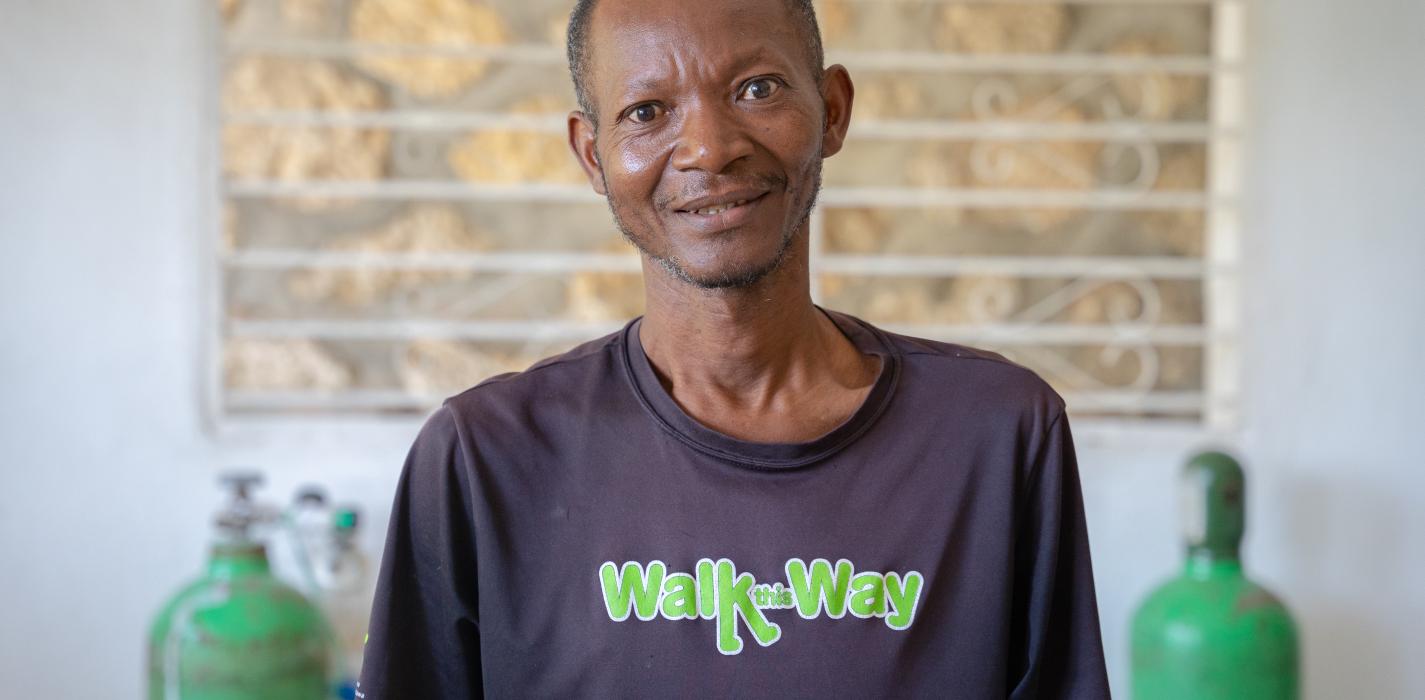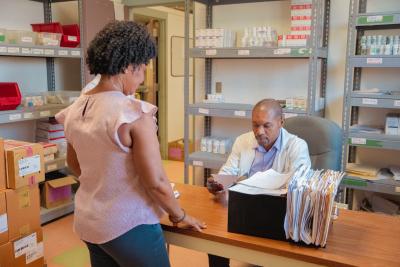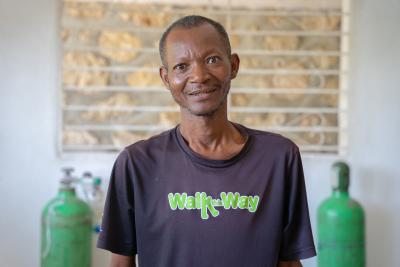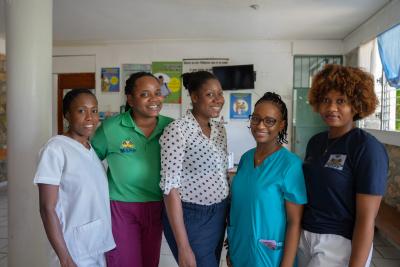VIH-Tuberculose

L’initiative de Zanmi Lasante pour l’équité en matière de VIH offre un traitement et un soutien pour le VIH en Haïti.
Notre impact
ZL a lancé l’Initiative d’Équité VIH en 1990, offrant traitement et soutien pour le VIH en Haïti. Avec plus de 2 000 travailleurs de la santé communautaire, ils mettent l’accent sur des soins holistiques pour les populations à risque.
-
88.51%Taux de rétention
des inscriptions pour le VIH (2023-2024)
-
+17 500Personnes recevant des médicaments antiretroviraux
2023-2024
-
+6 500Tests de dépistage
de la tuberculose (2024)
Pionnier en matière de prise en charge du VIH en Haiti
Le VIH/sida continue d’être une grande préoccupation nationale, en particulier pour les populations à risque et marginalisées. Selon l’ONUSIDA, en 2018, environ 160 000 personnes en Haïti vivaient avec le VIH, et 7 300 nouvelles infections de VIH ont été enregistrées. La même année, la prévalence du VIH était de 2 % chez les adultes âgés de 15 à 49 ans, ce qui est constant depuis 2006. En 1990, ZL a lancé l’Initiative pour l’équité en matière de VIH, qui est l’un des premiers programmes au monde à fournir un traitement antirétroviral dans des milieux où les ressources sont limitées. Au fil des ans, ZL est devenu l’un des plus importants fournisseurs de soins contre le VIH dans les départements du Plateau Central et de l’Artibonite.

Bertha Joseph, venant chercher les médicaments du pharmacien Renald Toussaint pour des patients suivant leur traitements contre le VIH.
Bertha est employée à l’Hôpital Universitaire de Mirebalais (HUM), en plus de travailler comme « accompagnatrice » ou agent de santé communautaire (ASC). Dans son rôle d’ASC, elle surveille les patients qui suivent un traitement contre le VIH, distribue des médicaments et leur apporte un soutien émotionnel tout au long de ce traitement.
Mélissa Jeanty / PIH
Pendant le lancement de l’Initiative pour l’équité en matière de VIH, les médicaments antirétroviraux coûtaient environ 10 000 $ par patient par an. ZL a commencé avec un noyau de 50 patients prouvant que le VIH peut être traité dans des milieux à faibles ressources. En utilisant une approche holistique, ZL combine les soins cliniques aux services de soutien social ; logement, nourriture, frais de scolarité, frais de transport et autres besoins de base. Un vaste réseau d› «accompagnateurs» et d’agents de santé communautaire polyvalents (ASCPs), qui créent le lien entre les patients et les établissements de santé soutenus par ZL, jouent un rôle important dans le succès du programme.

Thérèse et sa fille, Tatiana, toutes deux vivant avec le VIH, ont reçu un soutien médical et émotionnel vital de Zanmi Lasante (ZL), comme Partners In Health est connu en Haïti.
Thierry Bozile / PIH
Pionnier en matière de prise en charge du VIH en Haiti
En Haïti, les ASCPs mettent l’accent sur l’importance d’accompagner les gens dans leur cheminement vers la maladie et leur retour à la santé. Vivant dans les communautés où ils travaillent, les Agents de Santé Communautaire sont dignes de confiance et sont accueillis chez les patients pour fournir des services de haute qualité pour un large éventail de problèmes de santé. Les ASCPs s’assurent également que les patients ont de la nourriture, un logement et de l’eau potable afin qu’ils se rétablissent et restent en bonne santé. Ils mènent des campagnes d’éducation sur des sujets tels que la santé mentale, les maladies sexuellement transmissibles et les soins palliatifs, et donnent aux membres de la communauté les moyens de prendre en charge leur propre santé. Plus de 2 000 ASCPs travaillent au sein du réseau ZL.

Therome, patient atteint de tuberculose (TB) au Pavillon Thomas J. White de l’hôpital Bon Sauveur à Cange.
Therome est un père de famille de 49 ans originaire de Mare-Rouge, La Chapelle, dans le Plateau Central. Il bénéficie de soins spécialisés contre la tuberculose multirésistante (MDR-TB). Therome suit un traitement à Cange depuis 4 mois. Il est actuellement l’un des 3 patients atteints de tuberculose résidant au Pavillon. Son état s’est amélioré et les médecins prévoient de le laisser sortir après 2 mois supplémentaires de traitement.
Mélissa Jeanty / PIH
Les priorités du programmes sont :
- Le dépistage et traitement
- La prévention et éducation
- Le soutien social
- La prévention de la transmission de la mère à l’enfant

CANGE, HAÏTI - De gauche à droite, l’infirmière Robertha Brutus, l’infirmière Farah Jean, le Dr. Myriame Michel, Dr. Andjina Germain et l’infirmière Tamara Charles, toutes deux travaillant au sein du programme de lutte contre la tuberculose (TB) au Pavillon Thomas J. White de l’Hôpital Bon Sauveur à Cange.
Mélissa Jeanty / PIH
